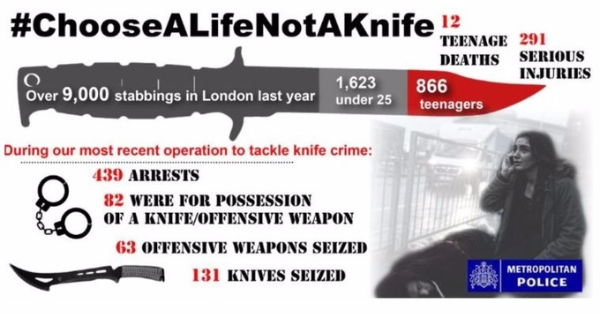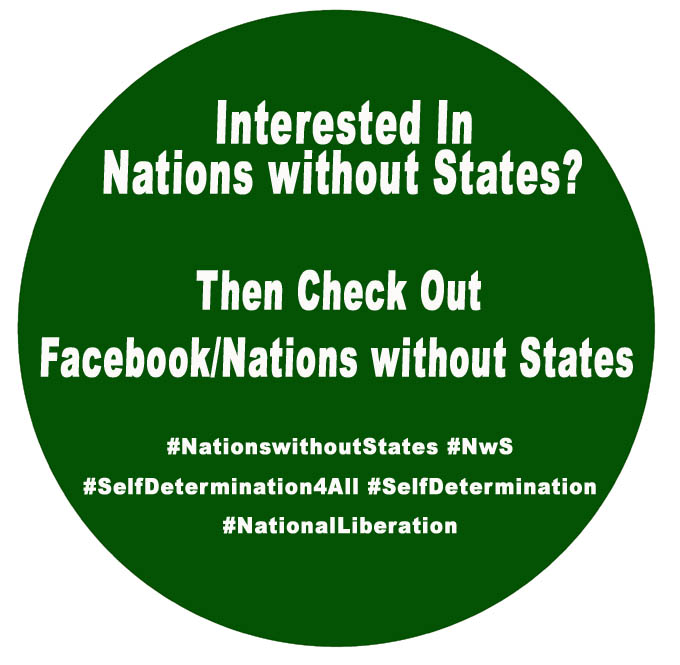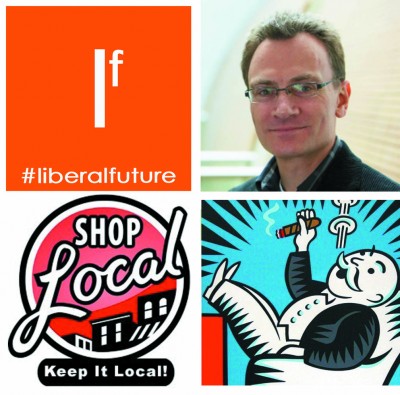From The Liberty Wall – National Liberal Trade Unionists – Words Of Wisdom – John Kenneth Galbraith

Date: October 9, 2019
Categories: Liberty Wall
Wednesday, 15 January 2025

Date: October 9, 2019
Categories: Liberty Wall
WELCOME TO the first debate hosted by Liberal Worker – the voice of National Liberal Trade Unionists. As many readers may know, supporters of the NLTU are different from many of our fellow trade unionists in that we’re not socialists (or capitalists). Neither are we particularly ‘into’ class definitions. We feel that class distinction has become increasingly blurred. Also to simply define someone by the class is very restrictive: living, breathing human beings are purely described in economic terms and everything else – say, their character or natural talents – count for nothing. Despite this, as trade unionists, we’re naturally very interested in the lives and well-being of ordinary working folks.
With the above in mind, a comrade has brought our attention to the following untitled article which was published way back in July by the Independent Working Class Association. According to the IWCA, it was established ‘to promote and celebrate the political independence of the working class, and to pursue the political and economic interests of that class with no consideration for, and regardless of, the consequences to the existing political and economic structures.’
The IWCA seem to be more in tune with ordinary working folks and aren’t afraid to talk about real social issues like immigration, anti-social behaviour and drugs. They are miles away from the trendy, metropolitan ‘middle-class champagne socialists’ who seemed to have taken over the Labour Party. These are just a couple of reasons why we’re happy to reproduce an article from their Facebook page which effectively looks at black knife crime in London knife crime, and the left’s insane Politically Correct reaction to it. This article will also be posted up on the National Liberal Trade Unionist Facebook page – https://www.facebook.com/groups/277840098977231/– and we’d invite our readers to post any comments up once they it.
Liberal Worker Debate (1) – How Should Workers View Stop & Search?

London’s Metropolitan Police have produced this graphic to address knife crime in the capital. Whilst the message is clear enough, Liberal Worker believes that the vast majority of ordinary working folk would support much tougher measures such as Stop & Search. What do you think?
SINCE 1 June there have been over 40 murder attempts in London ending in 12 fatalities. Yet if the figures are to be believed there has been a significant drop in knife crime since the re-introduction of stop and search. Yet the left continue to express their disgust at the use of the tactic. As an alternative they point to a supposedly more enlightened approach pioneered in Glasgow, but in deliberately ignoring one critical component, they again betray the minority ethnic communities they claim to cherish.
.
A week before the 2011 riots erupted, police went through 32 doors on the Pembury estate in Hackney in just one morning. Gang members were the target, the enormity of the operation illustrating both the scale of the problem and the surveillance and other resources required to combat it. And that was just one estate. A similar focus was required for many others across London. So in the run up to the shooting by police of Mark Duggan it was this focus that the gang leaders were increasingly unhappy with. Thus the killing became the catalyst for the gangs to hit back in a coordinated show of force. Coordinated in the sense that a truce was declared between the gangs that lasted for the duration of what the IWCA described at the time as a ‘lumpen rebellion’.
.
In the aftermath, the Government declared ‘war on the gangs’ while the IWCA analysis predicted the authorities had ‘learned their lesson’. And so it proved. According to the Times, stop and search “was all but abandoned after Theresa May, as home secretary, accepted findings that it was partly to blame for the riots”. Abandoned alongside the tactic were black working class communities, easy prey for the next generation of gangsters and killers (but then who speaks for them?). Inevitably, with the police disabled, the stabbings and shootings began to increase. A process which was further accelerated under new Mayor Sadiq Khan, who on the campaign trail had infamously promised to ‘do all in his power to further cut its use’.
.
But with stabbings quickly hitting record numbers, stop and search plus Section 60 notices (whereby police can stop and search without reasonable excuse across entire areas) were ushered back in. Since then, the use of the new powers has increased by 400 per cent, with a consequent 30 per cent reduction in killings and a 20 per cent fall in knife injuries to under-25s in the year to April.
Now, in a circular argument “fears have been raised of backlash over stop and search” according to a headline in the Times, suggesting the relative success of the policy may lead to further unrest. This is not only to confuse cause and effect, but also to muddle priorities. A condition Hackney Labour councillor Mete Coban represents in an effortless way. Tweeting from Stratford on June 16 he wrote: “Just came across 4 police officers at Stratford Station searching 2 young black boys for no reason. When I asked them [police], why are you searching them, one of them told me, ‘I have to stop these people getting stabbed’. This cannot be our response to knife crime. Disgusted.”
.
“Does Mete think that Section 60 orders are a more significant problem than gangland stabbings? Does he think stop and search is somehow the root cause of the knife crime problems?” inquires journalist Mary Wakefield. Yes, is the answer: because as it is already accepted in liberal circles that stop and search aligned with racial profiling was one of the root causes for the riots in 2011, it is not much of a stretch to seeing stop and search as the root cause for knife crime as well. Or as Katrina French of the monitoring group Stopwatch sees it: “Blanket Section 60 orders are an admission that you don’t know what is going on. It’s more about social control than crime prevention”. Of course when the idea of a police database was set up to allow them to know precisely ‘what is going on’, howls of “disproportionate” emanated from the same quarter. A similar puerility infers that as ‘social control’ is the authorities’ real objective, another gang orchestrated rampage which mainly involved looting, robbery, and arson would not only be justified but embraced as politically progressive.
.
If we challenge the Metes and Katrinas as to what they would consider a more proportionate response to the daily round of butchery, they will gleefully point to the Glasgow model where, according to liberal mythology, a cuddlier strategy has proven to be an overwhelming success. This is to close your eyes to one significant caveat. When the Violence Reduction Unit was set up in Glasgow in 2005, stop and search was regarded as paramount. By 2010 the tactic was being employed four times more than in England, and sentences for being caught in possession more than doubled to 5 years in jail.
.
Moreover, as recently released Scottish government figures demonstrate, it was when stop and search was at its most intense that serious assaults and attempted murders showed the most dramatic decline. In short, it was only after the habitual carriers had been jailed or otherwise dissuaded that the more holistic, community based approach had a chance to bed in. Naturally, the effective targeting of the habitual carrier is precisely what liberals are set against.
.
London has, of course, a number of aggravating factors (the sheer size of the place, sensitivity surrounding the ethnicity of victims and perpetrators alike, plus the mammoth profits from the drugs trade would all need to be factored in), but the adoption of the innovative hard line approach pioneered in Glasgow still looks like the most practical policy not only for the capital at present but for other English metropolitan areas as well. As for the madness assailing a left who blithely step over still warm bodies to shout ‘institutional racism’, there is however no legislative remedy.
Date: September 19, 2019
Categories: Articles, Liberty Wall

• ALSO Check out:
From The Liberty Wall – Total Democracy – Interested In Total Democracy? http://nationalliberal.org/from-the-liberty-wall-–-total-democracy-interested-in-total-democracy
From The Liberty Wall – St. George’s Committee – Interested In The St. George’s Committee? http://nationalliberal.org/from-the-liberty-wall-–-st-george’s-committee-interested-in-the-st-george’s-committee
From The Liberty Wall – National Liberal Trade Unionists – Interested In National Liberal Trade Unionists? http://nationalliberal.org/from-the-liberty-wall-–-national-liberal-trade-unionists-interested-in-national-liberal-trade-unionists
Date: August 14, 2019
Categories: Liberty Wall

Date: July 31, 2019
Categories: Liberty Wall, Party News
WELCOME TO the sixth debate hosted by Liberal Future – LF – the youth wing of the National Liberal Party. This debate relates to an article written by Kevin Albertson (who is Professor of Economics, Manchester Metropolitan University, in Lancashire, England) it appeared in The Conversation, which describes itself as ‘an independent source of news, analysis and expert opinion, written by academics and researchers, and delivered direct to the public.’
Originally called Hate Globalisation? Try Localism, Not Nationalism, Professor Albertson wrote his article a little while ago – see the original here: https://theconversation.com/hate-globalisation-try-localism-not-nationalism-86870 – although it’s only recently been brought to our attention. Despite this, we thought that it was very thought-provoking and should form the basis of this debate.
LF doesn’t agree with all of his extremely well referenced article. For instance, we get the impression that Professor Albertson is happy enough with capitalism whereas we’d like to get rid of it completely! We believe that it’s a cruel dog-eat-dog system that it obsessed with centralisation, control and gigantic profits. We’d like to overthrow capitalism and replace it with Distributism & Social Credit.
LF also questions his rather one-dimensional view of nationalism. Not all forms of nationalism are bad. Indeed, there’s probably as many varieties of nationalism as there are varieties of communism, socialism, liberalism, anarchism – and every other ‘ism’ that one can think of! It all depends how one defines nationalism and it’s important not to conflate nationalism – a love of one’s people & nation – with imperialism.
That said, we agree with Professor Albertson’s view that localism is an effective antidote to the misery and exploitation of globalism. For localism supports the local production, distribution and consumption of goods and services. In short, it puts the local economy, community and environment first.
Whilst his article concentrates on the theory of localism, we’re interested in the practicalities of disengaging from capitalism and promoting localism. Simply put – How Do We Keep It Local?
We invite our readers to share their thoughts when this article is reproduced on the Liberal Future Facebook site – https://www.facebook.com/groups/706779429376233/?epa=SEARCH_BOX – and the NLP Facebook site – https://www.facebook.com/NationalLiberalParty/ It goes without saying that there are no official links between Professor Albertson, The Conversation, Liberal Future and the National Liberal Party.
Hate Globalisation? Try Localism, Not Nationalism

IT HARDLY needs saying, but there are changes afoot in the political economy of the world. Where there is globalisation (1), there are globalisation protestors (2). This is nothing new (3), but it is becoming mainstream.
The antithesis of globalisation, nationalism (4), and the pursuit of your own country’s interests over those of everyone else, has bubbled back up in Europe (5). And it’s not just Europe, of course. In the US, president Donald Trump (6) is (among other initiatives) rethinking the American commitment to free trade (7).
In the rest of the world (8), the experience of globalisation shows it creates some winners (9) and some losers (10). This varies geographically (11) and in different economic fields (12), and is shown in different aspects of our lives (13).
And so, someone in London might find their house is worth more. As foreign capital flows in to buy up large swaths of the capital (14) it increases their wealth, while others might be priced out of the market. In some sectors of the market, wages might be declining (15) as a result of global competition, migration, casualisation (16) or automation (17). In the final analysis, however, it is not a matter of whether globalisation causes these changes (18), it is rather more that people feel that it does (19).
Globalisation is not, however, merely a matter of trade (20), migration (21) and foreign outsourcing (22). To many it seems Britain itself is for sale (23) as an increasing proportion of UK businesses and assets answer to foreign owners (24).
Economic theory suggests, therefore, the nation will increasingly be run for the benefit of foreign capital (25), rather than the citizens (26). On top of this, there is the danger that inflows of foreign capital will cause the exchange rate to appreciate, making it more difficult to export (27), reducing manufacturing output and reducing employment in those sectors affected.
To protect them from forces beyond their control, citizens across the world are increasingly looking to the nation state for protection, hence the rise of what is often called nationalism. As Abraham Lincoln (28) noted:
The legitimate object of government is to do for a community of people whatever they need to have done, but can not do at all, or can not so well do, for themselves – in their separate, and individual capacities.
It is clear, no individual or community can stand against the forces of global capital (29), and Western governments appear averse to giving the workforce the means to protect itself (30), through, for example, increasing employment rights (31) and unionisation (32). However, in their search for a strong government to protect them, citizens are in danger of giving the state too much power over their lives (33).
It is by no means assured that the policies which suit a strong domestic government will be better than those which suit foreign owned multi-national corporations. Also, history indicates the fear of global capital may be coopted by unscrupulous politicians into a fear of other nations or fear of other peoples.
Rather than nationalism, therefore, we might turn to localism (34). In the UK context, this might be devolution (35) with real (financial) localised power, and that power realised through local government and local business.
An economy of big businesses (operated for the benefit of global owners) is less than ideal for the individual and society. In contrast, a society of many small local businesses is more resilient, more empowering (36) and more in keeping with the spirit of capitalism and of the market (37). We must also bear in mind that increasing business concentration (fewer, but larger firms) is a driver of increasing inequality (38). If a business is too big to (be allowed to) fall (39), then the government has failed in its duty to keep business small.
The government might likewise consider how we might prevent those who do not even live in the country from driving up house prices (44).
Local protection from exploitation by global interests requires the right mix of global and local policies. And local government policies require adequate financing. By local financial power, I don’t mean local taxes. That has the potential to fragment the nation, as it has, to some extent, in the EU (45) (whether perceived rightly (46) or wrongly (47)).
If we fund education or social care out of local taxes, for example, there will tend to be a race to the bottom as local authorities will be motivated to underperform to encourage vulnerable families to go and live elsewhere (48). It follows taxes should be collected nationally, and shared proportionally (on the basis of demographic profile) to the devolved authorities.
There is no space here to discuss in detail other possible localism policies here, but there are many ways to promote local ownership and local empowerment. That could include local currencies, boosts to council housing, local authority ownership of utilities or support for locally-owned high street shops. However, it is not a policy mix I suggest, rather it is an emphasis.
Ultimately, the only viable alternative to the choice currently on offer, the choice of Big State or Big Business (49), is Small State and Small Business, or more appropriately Local Government and Local Business. To pursue localism will require a systemic shift in how the national government goes about shaping society, but I suggest it is possible to promote social justice in a capitalist context in no other way.
• CHECK out Liberal Future here: http://nationalliberal.org/liberty-wall-3/liberal-future
• ALSO check out previous Liberal Future debates here:
Liberal Future Debate (1) – Should We Lower The Voting Age Throughout the UK? http://nationalliberal.org/liberal-future-debate-1-%e2%80%93-should-we-lower-the-voting-age-throughout-the-uk
.
Liberal Future Debate (2) – Must The Earth Die Screaming? http://nationalliberal.org/liberal-future-debate-2-must-the-earth-die-screaming
.
Liberal Future Debate (3) – Do Sport And Politics Mix? http://nationalliberal.org/liberal-future-debate-3-%E2%80%93-do-sport-and-politics-mix
Liberal Future Debate (4) – Is Tony Blair A War Criminal? http://nationalliberal.org/liberal-future-debate-3-–-is-tony-blair-a-war-criminal
Liberal Future Debate (5) – Is It Racist To Highlight The Sexual Abuse In Rotherham & Telford? http://nationalliberal.org/liberal-future-debate-4-is-it-racist-to-highlight-the-sexual-abuse-in-rotherham
Date: June 24, 2019
Categories: Liberty Wall, Party News





Date: June 21, 2019
Categories: Liberty Wall
By continuing to use the site, you agree to the use of cookies. more information
The cookie settings on this website are set to "allow cookies" to give you the best browsing experience possible. If you continue to use this website without changing your cookie settings or you click "Accept" below then you are consenting to this.